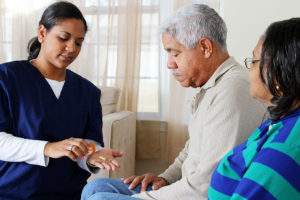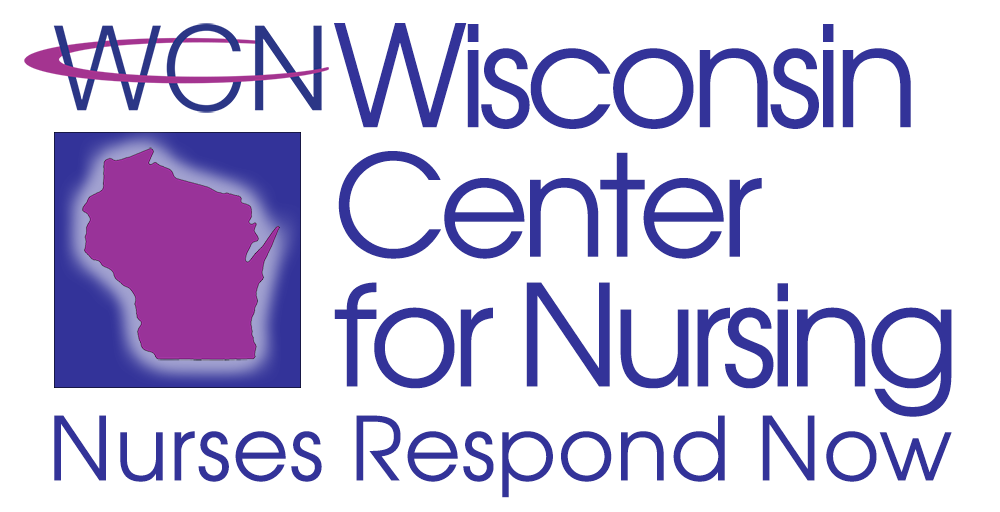Wisconsin Nurses Respond Now
- Training Description
- Practice Outcomes
- Organization Outcomes
- Who Should Enroll
- Learning Options
- Class Dates & Tuition

In this priority training series, RNs will gain specialized knowledge needed to better respond to vulnerable populations during a public health emergency.
Part 1: Identifying Vulnerable Populations as an Essential Part of Community Preparedness (3.0 HR)
Community safety and personal preparedness are vital to the overall preparedness of the United States yet vulnerable populations are often impacted by social determinants that limit their ability to respond and participate. This session discusses at-risk populations most likely to be impacted by a public health emergency including African Americans, Hispanic/Latino, American Indians, and older adults. Concepts of vulnerability and health equity will be examined within the context of nursing’s professional role and responsibilities.
Part 2: The Nurses’ Role in Responding to Public Health Emergencies in Your Community (3.0 HR)
Wisconsin Nurses who understand and are prepared to respond to public health emergencies can provide valuable leadership to our communities needing to plan and respond to a threat like COVID-19. Although data collected from the Wisconsin Workforce Development Survey indicates that most Nurses report receiving emergency preparedness training by their employers, nursing expertise is still needed by communities to ensure that public health initiatives are supported, vulnerable populations are identified and social determinants of health are addressed. Strategies nurses can offer to reduce risk and improve health outcomes for individuals and families will be discussed.

Nurses who complete this series will be able to:
1. Identify the impact of COVID-19 as a public health emergency on vulnerable populations including African Americans, Hispanic/Latino, American Indians, and older adults.
2. Examine the concepts of vulnerability and health equity as it relates to health disparity.
3. Describe Nursing’s professional commitment and responsibility to care for at-risk and vulnerable populations including recognition of my own unconscious bias.
4. Apply Social Determinants of health as a framework to identify and address the needs of vulnerable populations.
5. Identify ways registered nurses can support public health initiatives during the COVID-19 public health emergency.
6. Describe practice strategies registered nurses can use to reduce risk and improve the potential for positive health outcomes for vulnerable populations during the COVID-19 pandemic.

Healthcare systems who enroll their nursing staff will:
1.Be uniquely positioned to help meet the health care needs of patients and the community during a public health emergency.
2. Deploy registered nurses who have an enhanced understanding of patient risks, vulnerability, and disparities, as well as social determinants of health, and who can improve overall Healthcare System response during a public health emergency.
3. Be able to assure that their nursing staff has increased knowledge and resources to develop strategies and contribute to creative solutions that can improve health outcomes for vulnerable and at-risk patients.

• All RNs seeking to contribute positively towards improving potential health outcomes and ensuring more equitable care is provided for all Wisconsinites.
• Registered Nurses responsible for discharge planning, care transitions, care management or care coordination who are seeking a better understanding of the impact of social determinants of health on health outcomes for vulnerable populations.
• RNs & Advanced Practice RNs working across all practice settings including acute care, primary care and long term services and supports (i.e. nursing home, assisted living, hospice, home health, etc.)

This 6 CE faculty guided online learning option is designed to be competed independently following the course sequencing and faculty prompts embedded in the recorded lectures. With this option, register for the course, receive email confirmation and log in and begin. Work at your own pace, on your own schedule to complete content within 30 days.
The Wisconsin Center for Nursing has sought collaboration with the National RN Case Manager Training Center, a Wisconsin based nurse led education organization with experience in developing highly effective education programs designed to support rapid translation of new knowledge back into nursing practice. This Priority Training is provided using the National RNCM learning platform, course metrics, materials and practice resources.

• July 11 – August 9, 2021


